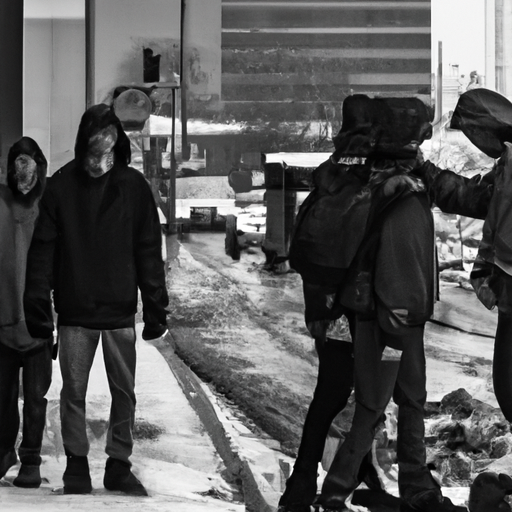Tackling Opioid Crisis Amidst Housing Challenges: A Case Study from Canada
The rising number of opioid-related deaths has become a national public health crisis in Canada, necessitating swift action on part of government bodies, healthcare organizations, and the civic society. In one such measure, the Victoria Brain Injury Society (VBIS) is setting up a new downtown office to combat the ill effects of the opioid crisis, in tandem with addressing the persisting housing challenges. Learn more about the situation here.
The Hamilton Opioid Crisis and Its Wide-Reaching Impact
The opioid predicament, referred to as the “Canadian opioid crisis”, has been especially severe in areas such as Hamilton. The crisis is not only a threat to public health but also negatively impacts various social aspects, leading to an increase in homelessness and crime rates.
The Homeless Situation in Context
In the face of these crises, most people either directly affected by opioid misuse or those dealing with the inequities of the housing market find themselves homeless. This vulnerable segment of our society is more likely to turn to opioids as an escape, thereby exacerbating the already grim scenario.
The Opioid-Crime Connection
The ripple effects of the opioid crisis also permeate into the realm of crime. Users often resort to unlawful activities to finance their substance use. Plus, the dangerously addictive nature of opioids leads to an escalation in violent crimes— a side effect that communities across Canada are grappling with.
Efforts Towards Abatement and the Role of VBIS
Innovative initiatives, like the Victoria Brain Injury Society’s decision to establish a new office downtown, bring a glimmer of hope amidst the bleak situation. VBIS’ commitment towards addressing the opioid crisis and the intertwined issue of homelessness can be observed in their participatory role in the Canadian opioid abatement class action.
Empowering the Homeless
VBIS recognises the critical need to offer support to the homeless. Their objectives are not just to provide immediate aid, in terms of food and shelter, but also to integrate them back into community life. This is being primarily achieved by creating a safe space for those on the streets and linking them with programs that provide education, training, and job placement.
Combatting Opioid Overdose with Naloxone
Another key initiative being enacted is the employment of naloxone– an opioid antagonist used to reverse the effects of an overdose. Through the widespread distribution of naloxone kits and educating community members on its effective use, VBIS aims to minimise fatalities arising from opioid overdose.
Key Points from the Discussion:
- The Hamilton opioid crisis is causing extensive damage, contributing not just to public health concerns, but also leading to an upsurge in crime and homelessness.
- Efforts are being taken to address these challenges, with the Victoria Brain Injury Society at the forefront. They are part of the Canadian opioid abatement class action, highlighting their dedication to the cause.
- The society’s focus on empowering the homeless acts as a double-edged sword, tackling both housing and opioid crises simultaneously.
- As part of their initiative, VBIS is investing in the dissemination of naloxone to reverse opioid overdoses, thus saving countless lives.
Conclusion:
The Canadian opioid crisis continues to evolve, taking on a multidimensional form that affects more than just the health sector. Combating this crisis requires a holistic approach that addresses the root cause and the effects of opioid misuse. Organizations like VBIS led actions, such as setting up a downtown office to provide a wider reach of naloxone, are steps in the right direction.
Our collective goal should be not just to manage the fallout of the crisis but to preemptively act on the stressors leading to opioid misuse, in order to ensure a robust recovery and a sustainable solution. Therefore, let’s vow to end homelessness and build support systems for those grappling with substance use – this two-pronged strategy could very well hold the key to resolving the complex crisis at hand.
